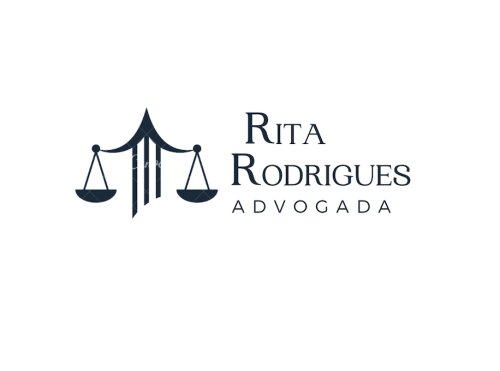Best Agriculture Lawyers in Porto
Share your needs with us, get contacted by law firms.
Free. Takes 2 min.
List of the best lawyers in Porto, Portugal
About Agriculture Law in Porto, Portugal
Agriculture is a significant part of the local economy in Porto, Portugal, despite the area being more urbanized compared to other regions. Agricultural law in Porto covers a range of issues affecting farmers, landowners, agribusinesses, and individuals involved in food production, livestock, and rural property. The legal framework is shaped by both Portuguese national legislation and European Union regulations, making it essential for those in the sector to have a clear understanding of their rights and obligations. These laws address land use, water resources, environmental protections, subsidies, and agricultural trade, among other issues.
Why You May Need a Lawyer
There are various situations where individuals and businesses involved in agriculture might require legal assistance in Porto. Some common scenarios include:
- Disputes over land boundaries or ownership
- Drafting or reviewing agricultural leases or contracts
- Compliance with environmental and zoning regulations
- Accessing government subsidies and grants for agricultural development
- Resolving water usage issues and irrigation rights
- Food safety and quality certification processes
- Intellectual property matters, such as protection of plant varieties
- Employment law matters for agricultural workers
- Succession planning for family-run farms
- Dealing with agricultural cooperative formation or membership issues
An experienced agricultural lawyer can help navigate the complex legal landscape and protect your interests.
Local Laws Overview
Agriculture in Porto is regulated by both local and national laws, with significant influence from European Union directives. Key aspects of the local legal framework include:
- Land Ownership and Use: Regulations affect how rural land can be used, including zoning rules, rights of way, and building permissions.
- Subsidies and Financial Support: The Common Agricultural Policy (CAP) influences the distribution of grants and subsidies, requiring compliance with specific eligibility criteria.
- Environmental Protections: Strict guidelines exist for pesticide use, waste management, and conservation of natural habitats to ensure sustainable farming practices.
- Water Rights: Laws govern irrigation, access to watercourses, and sustainable water usage for farm operations.
- Labor Law: Agricultural employment contracts, worker rights, and safety standards are governed by the national labor code as well as specific provisions for farm workers.
- Food Safety and Quality: Local and national authorities oversee regulations on food traceability, labeling, organic certification, and quality assurance.
Understanding these regulations is key for productive and compliant agricultural operations.
Frequently Asked Questions
What types of agricultural activities are most common in Porto?
Viticulture (wine production), olive cultivation, small-scale vegetable farming, and livestock are prevalent in Porto and its surrounding areas.
Do I need a special license to start a farm in Porto?
Most farm activities require registration with local authorities, and certain operations may need specific licenses, particularly regarding livestock, chemicals, or food processing.
Are there subsidies available for farmers in Porto?
Yes, various subsidies exist, mainly through the European Union's Common Agricultural Policy. These require compliance with eligibility rules, which can be complex.
What is the process for buying agricultural land?
Buying agricultural land involves due diligence, ensuring proper zoning, clear land titles, and compliance with restrictions on land use. Legal assistance is recommended.
What environmental regulations affect farmers?
Farmers must adhere to rules on pesticide use, waste disposal, preservation of natural areas, and sustainable practices, as monitored by environmental authorities.
How can I resolve a land dispute with a neighbor?
Land disputes often require mediation or legal intervention. Consulting a lawyer early can help clarify boundaries and rights, potentially avoiding lengthy litigation.
Can I hire seasonal workers for my farm?
Yes, but you must comply with labor laws regarding contracts, wages, working hours, safety, and migrant worker regulations. Penalties apply for noncompliance.
What are the requirements for exporting agricultural products?
Exporting requires compliance with both Portuguese and EU food safety standards, proper certification, and adherence to labeling and transportation rules.
Are there cooperative structures for farmers in Porto?
Yes, farmers can form or join agricultural cooperatives to access shared resources, better pricing, and legal support for collective activities.
What should I include in an agricultural lease agreement?
Lease agreements should address rent, land usage permissions, maintenance responsibilities, duration, renewal options, and dispute resolution mechanisms. Legal advice is recommended to ensure compliance and protection.
Additional Resources
Here are some key organizations and resources for agricultural legal matters in Porto:
- Ministry of Agriculture and Food (Ministério da Agricultura e Alimentação): The primary government body overseeing agricultural policy and support.
- Directorate-General for Agriculture and Rural Development (DGADR): Provides technical guidance and regulatory information for rural activities.
- Confederation of Portuguese Farmers (CAP): Represents agricultural interests and offers support to farmers and agribusinesses.
- Porto City Council: Offers information on local zoning, permits, and rural property matters.
- Local Cooperatives and Farmers’ Associations: These often provide legal advice, collective representation, and resources for their members.
Next Steps
If you believe you need legal assistance in the field of agriculture in Porto, consider the following steps:
- Identify your specific issue or question - is it related to land, labor, subsidies, or another area?
- Gather relevant documents, such as land titles, contracts, official correspondence, or government notices.
- Contact a qualified agricultural lawyer or a legal service familiar with agrarian law in Porto for a consultation.
- Utilize services provided by local associations, cooperatives, and government offices to find referrals or initial guidance.
- Prepare a list of questions and concerns before meeting with the legal professional to make the most of your consultation.
Legal issues in agriculture can be complex, so acting promptly and seeking expert advice will help protect your interests and ensure compliance with all necessary regulations.
Lawzana helps you find the best lawyers and law firms in Porto through a curated and pre-screened list of qualified legal professionals. Our platform offers rankings and detailed profiles of attorneys and law firms, allowing you to compare based on practice areas, including Agriculture, experience, and client feedback.
Each profile includes a description of the firm's areas of practice, client reviews, team members and partners, year of establishment, spoken languages, office locations, contact information, social media presence, and any published articles or resources. Most firms on our platform speak English and are experienced in both local and international legal matters.
Get a quote from top-rated law firms in Porto, Portugal — quickly, securely, and without unnecessary hassle.
Disclaimer:
The information provided on this page is for general informational purposes only and does not constitute legal advice. While we strive to ensure the accuracy and relevance of the content, legal information may change over time, and interpretations of the law can vary. You should always consult with a qualified legal professional for advice specific to your situation.
We disclaim all liability for actions taken or not taken based on the content of this page. If you believe any information is incorrect or outdated, please contact us, and we will review and update it where appropriate.
















